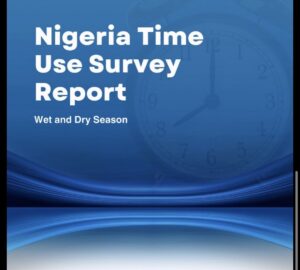Nigeria’s inflation rate rises to 24.23% in March

National Bureau of Statistics NBS
Abdullateef Fowewe
The National Bureau of Statistics has reported that Nigeria’s headline inflation rate edged up to 24.23 per cent in March 2025.
The NBS announced the increase in its consumer price index (CPI) for March on Tuesday.
The new rate indicates an upward movement from the 23.18 per cent reported in February.
It also signals a return to levels (24.48 per cent) recorded at the beginning of the year following the CPI rebasing.
The report says, “In March 2025, the Headline inflation rate rose to 24.23% relative to the February 2025 headline inflation rate of 23.18%.
“Looking at the movement, the March 2025 headline inflation rate showed an increase of 1.05% compared to the February 2025 Headline inflation rate.
“Furthermore, on a month-on-month basis, the Headline inflation rate in March 2025 was 3.90%, which was 1.85% higher than the rate recorded in February 2025 (2.04%).
“This means that in March 2025, the rate of increase in the average price level is higher than the rate of increase in the average price level in February 2025.”
NBS declared that the headline inflation rate was driven by the cost of food, transport, and accommodation services.
The statistics body noted that the food inflation rate in March 2025 was 21.79 per cent on a year-on-year basis.
“However, on a month-on-month basis, the bureau said the food inflation rate was 2.18 per cent in the period reviewed, up by 0.50% compared to February 2025 (1.67%).
“The increase can be attributed to the rate of increase in the average prices of Ginger (fresh), Garri (Yellow), Broken Rice (Ofada), Honey (Natural Production), Crabs, Potatoes, Plantain Flour, Peri-winkle (Unshelled), pepper (fresh), etc,” said NBS report.
The NBS report further disclosed that food inflation, on a year-on-year basis, was highest in Oyo (34.41 per cent), Kaduna (31.14 per cent), and Kebbi (30.85 per cent).
On the other hand, states such as Bayelsa (9.61 per cent), Adamawa (12.41 per cent), and Akwa Ibom (12.60 per cent) recorded the slowest rise in food inflation on a year-on-year basis.
According to NBS, on a month-on-month basis, food inflation was highest in Oyo (19.74 per cent), Kaduna (17.24 per cent), and Kebbi (14.03 per cent) while states like Sokoto (-14.10 per cent), Nasarawa (-9.91 per cent) and Edo (-5.78 per cent) recorded a decline.




